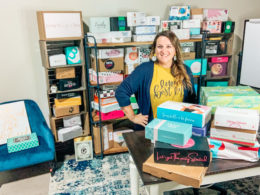To make a mobile app or not to make a mobile app? That’s the question
Making a mobile app sounds glamorous, but before you do it check your reasoning. After all you want the mobile app to be successful right?
1) To Get Rich
Everyone has heard of them.
Snapchat, Instagram, WhatsApp. ($10b, $35b, $16b acquisition, respectively)
They’re the home runs; the golden children of the app store. Together, their valuations have reached a combined $51,000,000,000.
That’s a lot of zeros.
What you don’t hear about, though, are the 600.000 apps in the Apple App store with revenues less than $500 per month. When you consider the cost of development ($10,000 +), the cost of acquiring users, and maintaining the app ($1000+), the economics are striking if your business model isn’t sustainable long term.
Sure, maybe you have an exit in mind rather than just operating an app long term. Even in that case you’ll need one of two things; either large enough investment to provide runway for an app that doesn’t generate enough revenue to support itself until you hit a critical mass, or an impressive amount of users with potential ways of monetizing in the future.
You get an impressive amount of users by either having a killer product that needs no marketing (Instagram), a ton of money to acquire users (Zynga Apps), or a viral product (Flappy Birds).
In the best scenario, you’d have all three.
If you can’t find cash to fund your idea, you’re left with just the product. So be darn sure it’s the best you’ve got to keep people coming back for more!
2) To Capture .5% of a Market
AKA The “Compete with Uber” Fallacy.
Example: Is Uber not in your city? Thinking of doing your own Uber model in your city before they get there?
Let’s say that the ride-sharing market is worth $100 billion. “You think, all I have to do is wrangle .5% of that, and I have a $500 million dollar business!”
Does that mean it’s a good idea to compete on that market share opportunity alone? Probably not. You’ll be up against stiff competition with a better product, better marketing, and deeper pockets.
The same goes for any business opportunity. If you your app sells widgets to beekeepers, you might do research and find out that $100 million is spent on beekeeping equipment every year. So you think “Hey, I can get 5% of that and have a nice share.”.
Instead, look at how much of that $100 million is spent online.
20%? Great.
How much of that is on mobile?
25%? Great.
How much of that can you capture? 10%?
Your opportunity just shrank from $5 million to $400,000.
Now, your operating costs exceed your revenue. Uh-oh!
The alternative is to, well, get creative. Rather, think about solving a unique problem with a novel solution (that can be monetized) and just capture a huge share of a small market poised to grow.
Did Uber start off by saying, “We can capture 50% of the personal transportation market and be worth $100 billion!”?
I don’t think so.
It was, “Hey friends, here is this new app & service we created. We don’t think it is like anything else you’ve ever experienced, but we think you’ll find it super useful every day.”.
The rest is history.
Create your own category.
3) To Impress Your Friends
Your friends will awe in amazement when you show them the app you had made.
The problem is, they’ll soon forget about it, and maybe you too if you’re not careful!
You’ll be giving up a lot of time to work on making your app a success and a lot of money to make it feasible. You’ll have to forgo drinks with them after work on Thursday so you can spend that time and money on your business after your full time job is done for the day.
Don’t make an app because it sounds “sexy”. Do it for the right reasons, like providing a solution to a problem.
Doing that will impress everybody, not just your BFF.
4) Because Your Family Said They’d Use It
If you put on the most hideous outfit you could cobble together and ask your mother if it looks good, she’ll tell you it looks great.
Why? It’s what you want to hear.
It’s also an obviously biased answer.
Real research should start with an analysis of the app store. Does this exist already? Do similar apps exist? How are they doing?
Armed with a list of apps, do some research on Google Trends to see how they are trending.
Get a list of keywords associated with your app. Following the beekeeper example, you can size up the trend of “honey” on Google trends.
That could (or could not), be indicative of an interest in beekeeping as a means to make your own honey.
Boom — opportunity!
Next up, you’d talk to the potential users and just ask them, “Is this something you’d find useful?” You’ll probably be surprised at what they say, and may end up with a totally different product than you originally brought to them.
All in all, talk to the people that matter, your future users.
Dang, Why Would I Ever Make an App?
Ok, this is going to sound hypocritical.
Being a mobile app entrepreneur, or any entrepreneur, means you have to be willing to ignore conventional wisdom and put your gut feeling above all else. Do you have a unique advantage, or unique insight that can propel you above the rest? Are you confident that you’ll nail the virality of the product, and your users will be the only marketing team you need?
If so, sometimes, you just have to go for it.
Maybe your Mom is right, maybe you’re onto something?






